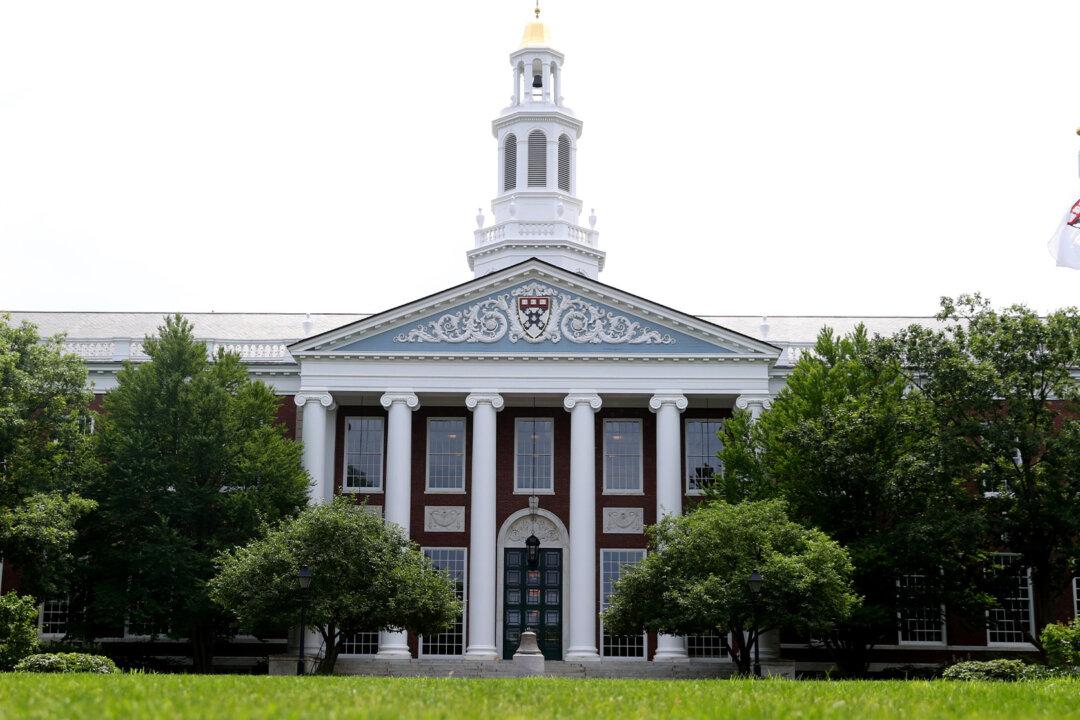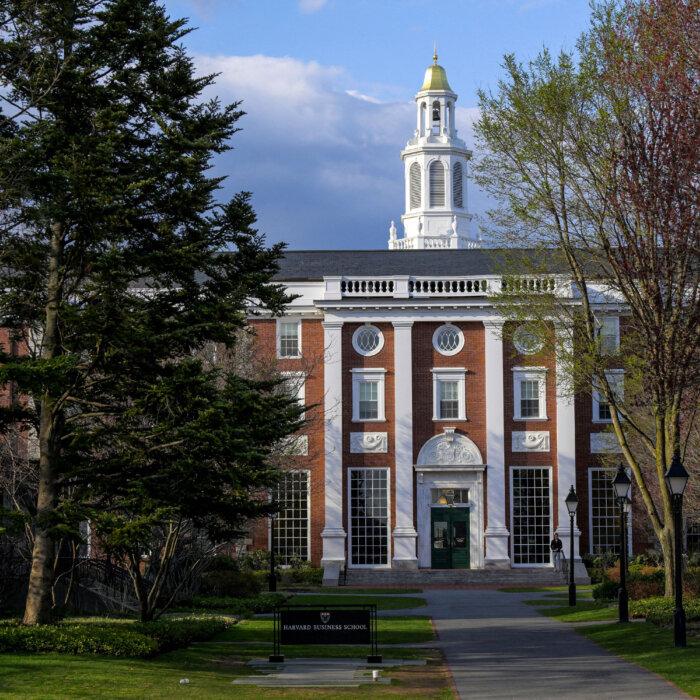BOSTON—A federal judge said on May 29 that she would maintain a temporary block she had placed on the Department of Homeland Security’s revocation of Harvard’s certification under the Student and Exchange Visitor Program, which allows it to enroll foreign students.
Lawyers for Harvard and the Department of Justice (DOJ) had been scheduled to have a hearing on the potential for a longer-term block. However, before the hearing, the Trump administration changed its position and told the judge that instead of immediately decertifying Harvard, it would consider the issue through a more lengthy administrative process.
Harvard had sued the administration, alleging that its quick attempt to revoke its certification was in retaliation for protected speech. It also alleged that the revocation, announced by the Department of Homeland Security on May 22, was illegal because it did not follow the proper administrative process.
An attorney for the DOJ attempted to argue on May 29 that a court order was unnecessary at this point of the litigation. But District Judge Allison Burroughs of the U.S. District Court for the District of Massachusetts said she thought that the university was encountering some kind of harm under the First Amendment and that she wanted to issue a more permanent block, known as a preliminary injunction.
One of Harvard’s attorneys said he was “quite worried” and that both foreign and domestic students were seeking to leave the university.
Under the revocation, thousands of international students would not have been able to enter the country for the upcoming summer and fall terms, the university said. In total, the university hosts 5,000 students from 143 countries as part of J-1 and F-1 visas. It said 2,000 international students were part of optional practice training programs.
“Consequences must follow to send a clear signal to Harvard and all universities that want to enjoy the privilege of enrolling foreign students, that the Trump Administration will enforce the law and root out the evils of anti-Americanism and antisemitism in society and campuses,” she said.
The lawsuit was filed alongside another seeking to prevent the loss of billions of dollars in federal funds for Harvard—something the university says will affect critical research and the economy. The DOJ announced a funding freeze after the university refused to comply with various demands related to diversity and countering anti-Semitism on campus.
Harvard told Burroughs, who is overseeing both lawsuits, that it had already implemented its own program to combat anti-Semitism and that the administration was attempting to control its constitutionally protected speech. Similarly, Noem’s decision was a form of unconstitutional retaliation, the university argued.
The administration’s May 28 filing offered the university 30 days to challenge its decision.
It said that while Harvard had provided a “great deal of information” on its foreign students, “the University failed to directly address the specific questions in the request.” Noem had requested information regarding foreign students who may have been involved in on-campus protests or violence that may lead to them being deported.
The filing also referenced evidence suggesting that Harvard had coordinated with the Chinese Communist Party and “other foreign adversaries.” This is a “valid and substantive reason for withdrawing” Harvard’s ability to enroll the students, the filing states.
Meanwhile, Secretary of State Marco Rubio has announced that the administration will begin revoking visas of Chinese students.







